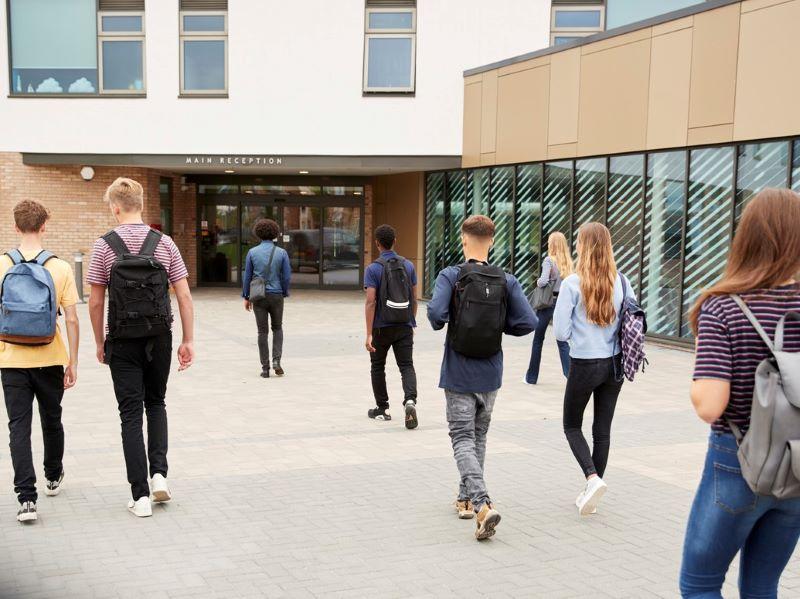With the June 2023 release of the interim report of the Australian Universities Accord, Australia is midway through the most significant review of its tertiary sector since the 2008 Bradley Review. The accord’s first two terms of reference are focused on enhancing quality education and improving access to higher education. The 2023 report emphasises the vital importance of equitable access to quality higher education urging the exploration of new ideas “to prevent excessive debt and rising student cost-of-living pressures from discouraging people of all ages from pursuing higher education and completing their qualifications”.
One of the areas in which this concern is particularly acute is in relation to work-integrated learning (WIL) and equitable access to internships. For many degrees, such work-based internship placements are a mandatory requirement and necessitate attending a workplace, in person or virtually, for an extended period to gain exposure to the world of work and bridge the so-called “theory-practice gap”.
- New students leaving care need extra support to beat the odds (again)
- It’s time to change the narrative on affirmative action
- Recognising First Nations through place: creating an inclusive university environment
While placements are believed to promote employability, for many students, especially those from equity groups, the costs of placements can be a significant financial burden. The result is that some students cannot complete their degrees or have their well-being compromised as a result of participation.
Reflecting broader research into student well-being and WIL, the interim report clearly identifies the problem that “mandatory WIL and clinical training requirements…often require students to forgo paid work to undertake these unpaid placements. This places significant pressure on students, exacerbated for students from low SES [socio-economic status] and regional backgrounds and students (most commonly women) who have caring responsibilities”.
In addition to sacrificing paid work, a student might also need to travel to the placement location, pay for accommodation while they complete the placement, purchase appropriate clothing or equipment and pay for associated costs such as attending work-related functions. Some students are required to pay for their own insurance, while others might even pay for access to the placement itself when it has been organised by a third-party broker. This is often the case for international students who lack local professional connections.
The financial burden faced by students is linked, in part, to Australia’s labour laws, in particular the definition of “vocational placement” in the Fair Work Act 2009. Hosts of vocational placements are exempt from offering many labour law rights that apply to employees. Many placement hosts elect to rely on the operation of this exemption, which means placement participants cannot be entitled to any remuneration. It is therefore not surprising that most vocational placements are unpaid and that Australia has a high rate of unpaid WIL. Combined, these factors present a significant barrier to improving access to higher education and can serve to entrench educational disadvantage.
What sorts of responses might the Australian Universities Accord Panel consider to ameliorate these issues? We believe the panel could consider a variety of reforms. Many of them would require a change in priorities and practice by universities to centre student well-being. For example, universities could provide universal support to facilitate diverse student cohorts participating in WIL placements with equal success, through measures to ensure all students can (1) secure high-quality WIL placements and (2) are supported to access travel, accommodation and equipment to enable them to complete WIL placements.
To facilitate uniform practice across the university sector, the panel might need to recommend the imposition of enforceable obligations on universities through new legislation or amending accreditation requirements to ensure that these matters are addressed. In addition, if the imposition of such obligations on universities is to succeed, they would need to be supported by adequate resources.
Additional regulatory changes could also help to increase students’ access to WIL. For example, amending the Fair Work Act 2009 to remove the requirement that a vocational placement is not remunerated would enable hosts to offer financial assistance to student participants without risking the imposition of a wider range of labour law obligations than they are prepared to accept. Alternatively, the provision could be amended to clarify that the provision of a stipend, bursary or scholarship to a WIL student does not constitute remuneration for the purposes of the provision.
Australian regulation is currently silent on the maximum duration of WIL placements, but regulation in other jurisdictions imposes limits on how long a placement can extend, how many WIL participants can be hosted by one employer and minimum supervision requirements. These are all reforms that could be contemplated in Australia to improve the quality of WIL and minimise equity implications.
Another change that would help many students completing mandatory WIL that is not linked to a particular course or unit (such as the extramural WIL required of vet science students in many degrees) could be to extend government support for eligible students (via Austudy and ABSTUDY) or to extend OS-HELP to assist students undertaking WIL placements away from home to cover additional costs. The panel could recommend more creative regulatory schemes, such as providing tax incentives for eligible organisations to host and pay students completing WIL placements.
The interim report observes that “the Australian higher education sector lacks the institutional resilience and ‘metabolic rate’ needed to prepare our nation for the future. There is so much that needs to be done and higher education policy must respond.” Addressing the inequities in the current WIL system must be a part of this reform agenda. In finding solutions to these problems, we encourage the Australian Universities Accord Panel to think creatively and to involve students, particularly those who are most disadvantaged by the current regime, in these deliberations.
Anne Hewitt is an associate professor at the University of Adelaide Law School, Australia, who researches equitable access to high-quality work and education.
Craig Cameron is a senior lecturer in business law at the University of the Sunshine Coast, Australia, whose research focuses on labour law, corporate law and work-integrated learning.
Deanna Grant-Smith is a professor in the QUT Faculty of Business & Law at the Queensland University of Technology, Australia.
Laura Grenfell is an associate professor at the University of Adelaide Law School, Australia, whose research focuses on equity, human rights and accountability.
If you would like advice and insight from academics and university staff delivered direct to your inbox each week, sign up for the THE Campus newsletter.




comment